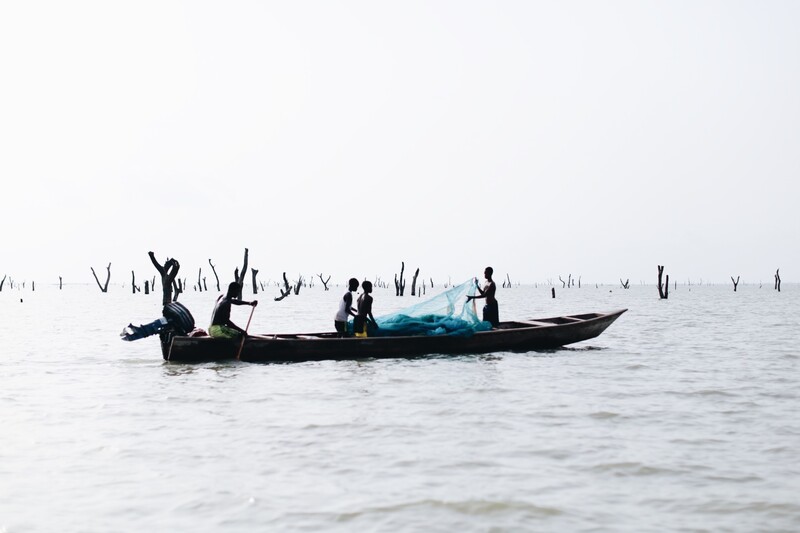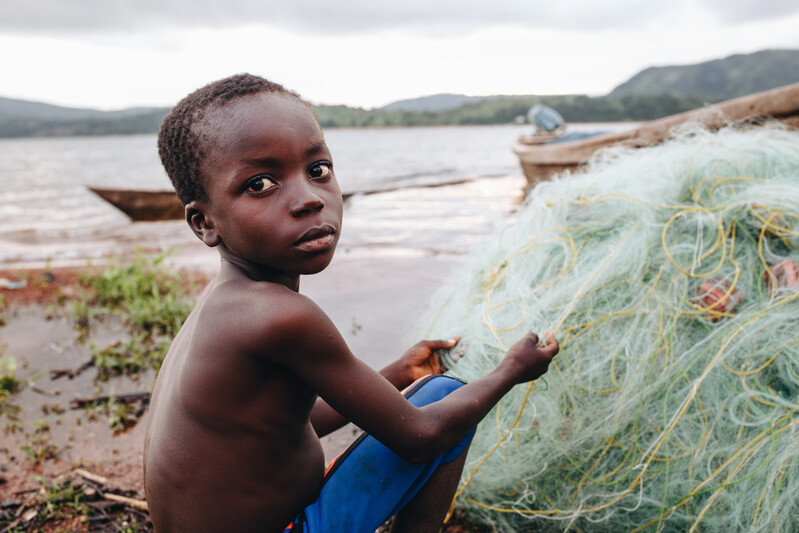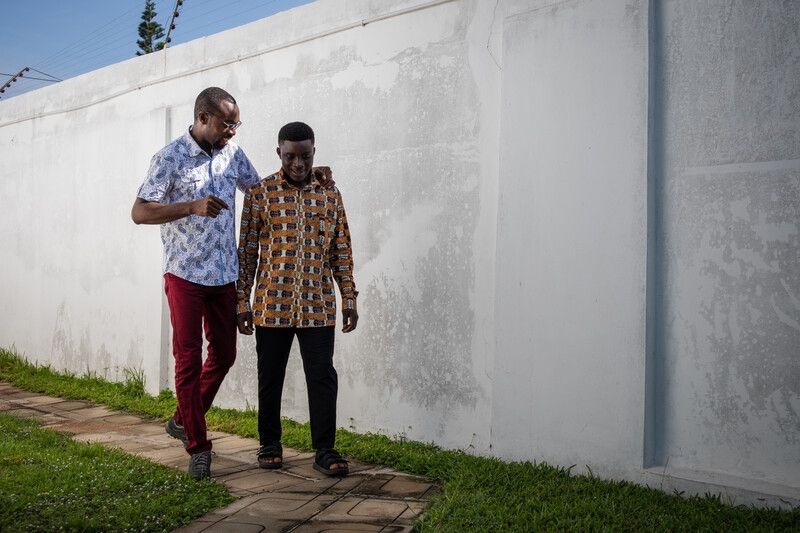Blog Post - Sep 27, 2022
Building a System of Justice
To protect IJM survivors, we have used pseudonyms, obscured some images and included photos that do not depict actual victims where appropriate. Consent gathered for all images.
Dairyland is committed to using business to make a safer world through rugged and reliable products as well as in our partnership with leading nonprofits working to combat suffering around the world. This year, Dairyland has focused our giving on four quarterly initiatives (read about quarters one and two here). This quarter, Dairyland allocated funds to combat forced child labor in Ghana, working with longtime partner International Justice Mission (IJM). Here we will share how IJM is working to reshape an environment once ripe for exploitation into a nation committed to protecting its vulnerable children.
The Wrong Kind of Growth
The UN recently noted a dramatic rise in modern slavery taking place over the last five years, with ten million more people trapped in exploitation ranging from forced labor to sexual exploitation. Of the 27.6 million people forced to work against their will, 3.3 million are children (BBC, 2022).
Zooming In: Lake Volta, Ghana
 Human exploitation is occurring in large cities and small rural villages around the world, in both affluent and socioeconomically disadvantaged nations. One such setting is Ghana’s Lake Volta, the largest human-created reservoir in the world by surface area (for reference, it’s the size of the two U.S. States – Delaware and Rhode Island – combined). Lake Volta is teeming with fish, attracting many fishermen who use child labor to increase their own financial profits. While not all children fishing on the lake are trafficked, many are and they receive none of the benefits – like education, medical care, and pay – that were promised to their caregivers. Some children are as young as three years old when they first arrive on the lake. Many do not return for years if at all.
Human exploitation is occurring in large cities and small rural villages around the world, in both affluent and socioeconomically disadvantaged nations. One such setting is Ghana’s Lake Volta, the largest human-created reservoir in the world by surface area (for reference, it’s the size of the two U.S. States – Delaware and Rhode Island – combined). Lake Volta is teeming with fish, attracting many fishermen who use child labor to increase their own financial profits. While not all children fishing on the lake are trafficked, many are and they receive none of the benefits – like education, medical care, and pay – that were promised to their caregivers. Some children are as young as three years old when they first arrive on the lake. Many do not return for years if at all.
International Justice Mission (IJM) has become a recognized international leader in addressing modern slavery and exploitation of children. They intervene through strategic partnerships and programming to address symptoms (like a six-year-old child working from dawn past dark) as well as the systems (such as an absence of legal precedence or process to convict criminals) that perpetuate them.
In a recent presentation to the Dairyland team, Will Lathrop and Rochelle Lashley, both members of IJM’s Ghanaian field office, described the situations their team encounters on and surrounding the lake. “It is overwhelmingly common that children are beaten daily. It’s not uncommon that some are sexually abused, and almost all are suffering from malnourishment or some form of disease.” A week prior, they had rescued a five-year-old girl who was immediately admitted to the hospital with a life-threatening illness.
“It’s a bleak industry,” said Will, “but it’s only bleak until the point of intervention and the stories of success are quite high. When we intervene, we see these kids get freedom.”
 IJM has built a robust team and partner network to address the issue of child exploitation from prevention through investigation and rescue, to aftercare and criminal prosecution of traffickers. What is different about their model is that they equip and empower local lawyers, police departments, community members, judges, and government officials to address the issues of their own communities.
IJM has built a robust team and partner network to address the issue of child exploitation from prevention through investigation and rescue, to aftercare and criminal prosecution of traffickers. What is different about their model is that they equip and empower local lawyers, police departments, community members, judges, and government officials to address the issues of their own communities.
One big area of impact: Training judges.
Why Judges?
According to Will, children were going to court to testify against their traffickers and finding themselves being further victimized by the process, after escaping the abuse of their original traffickers. This often led to victim blaming and secondary trauma without consequences for the abusers. For example, one boy was forced to sit next to his trafficker throughout the entire court process, another was berated and told his mother couldn’t have loved him to allow this, and the stories continue.
As IJM has invested their efforts in judges, they have seen a clear shift. Judges that were initially skeptical or under-equipped have become champions of justice. They now better understand cycles of abuse—long-term effects of trauma, trauma-informed care, and best practices for presiding over cases with abused minors—and they are using this information to change the environment within courts across the country.
In 2018, the IJM team was told they would never be able to secure convictions for child trafficking in Ghana. But exactly the opposite has occurred. In the years since, the team was able to secure the first conviction and follow it with over forty more. Will describes the reality of working toward a seemingly overwhelming problem. “We can’t catch everyone; we just need to catch enough and broadcast their captures to deter others, amplifying the long-term effect.” It sends a signal to traffickers that what they could once do openly can now land them in jail. ”Things have been [getting] better and we’re hopeful that someday they will be good,” Will said in his closing statements.

Dairyland’s partnerships involve financial support of humanitarian organizations that demonstrate highly effective and compassionate engagement to eliminate poverty and suffering around the globe. Our quarterly contributions are investments in specific regions, programs, and/or initiatives that are determined in partnership between Dairyland and the organizations according to need. We also strive to actively learn from these partners, regularly welcoming them to speak at team meetings and broaden our worldviews.
Don’t miss a story of impact! Follow us on LinkedIn, Instagram, or Facebook to stay informed and learn how together we are making a safer world.